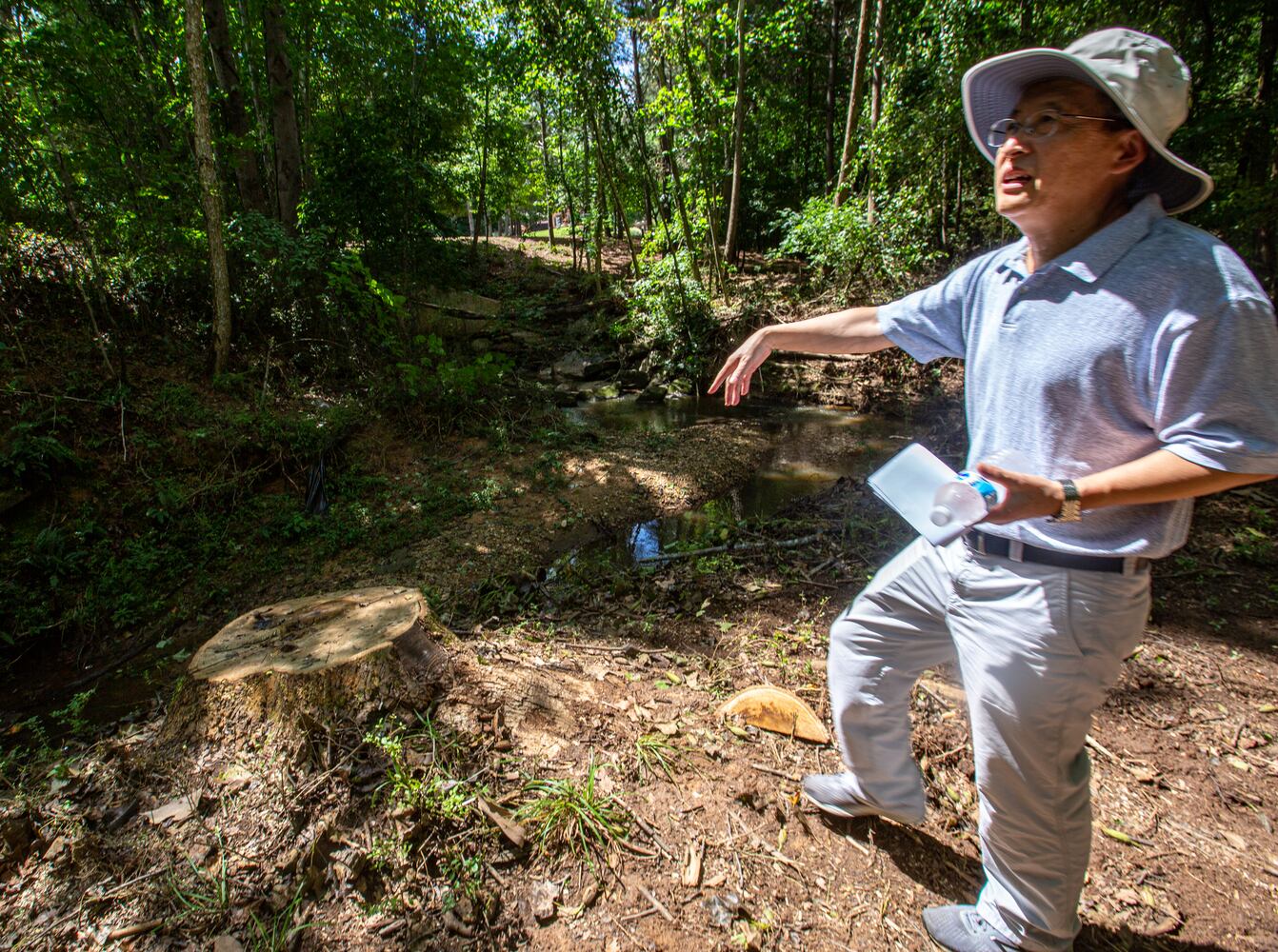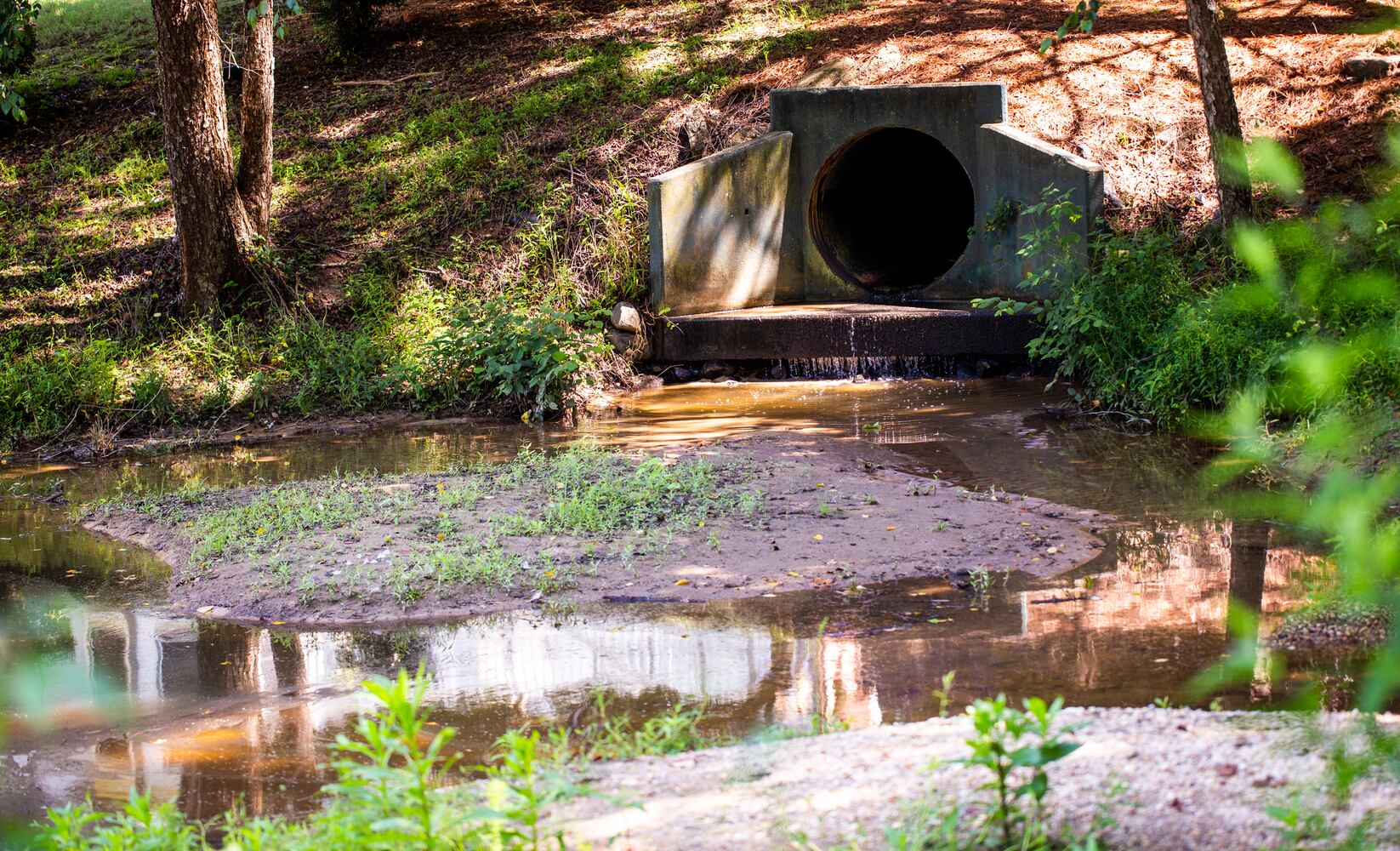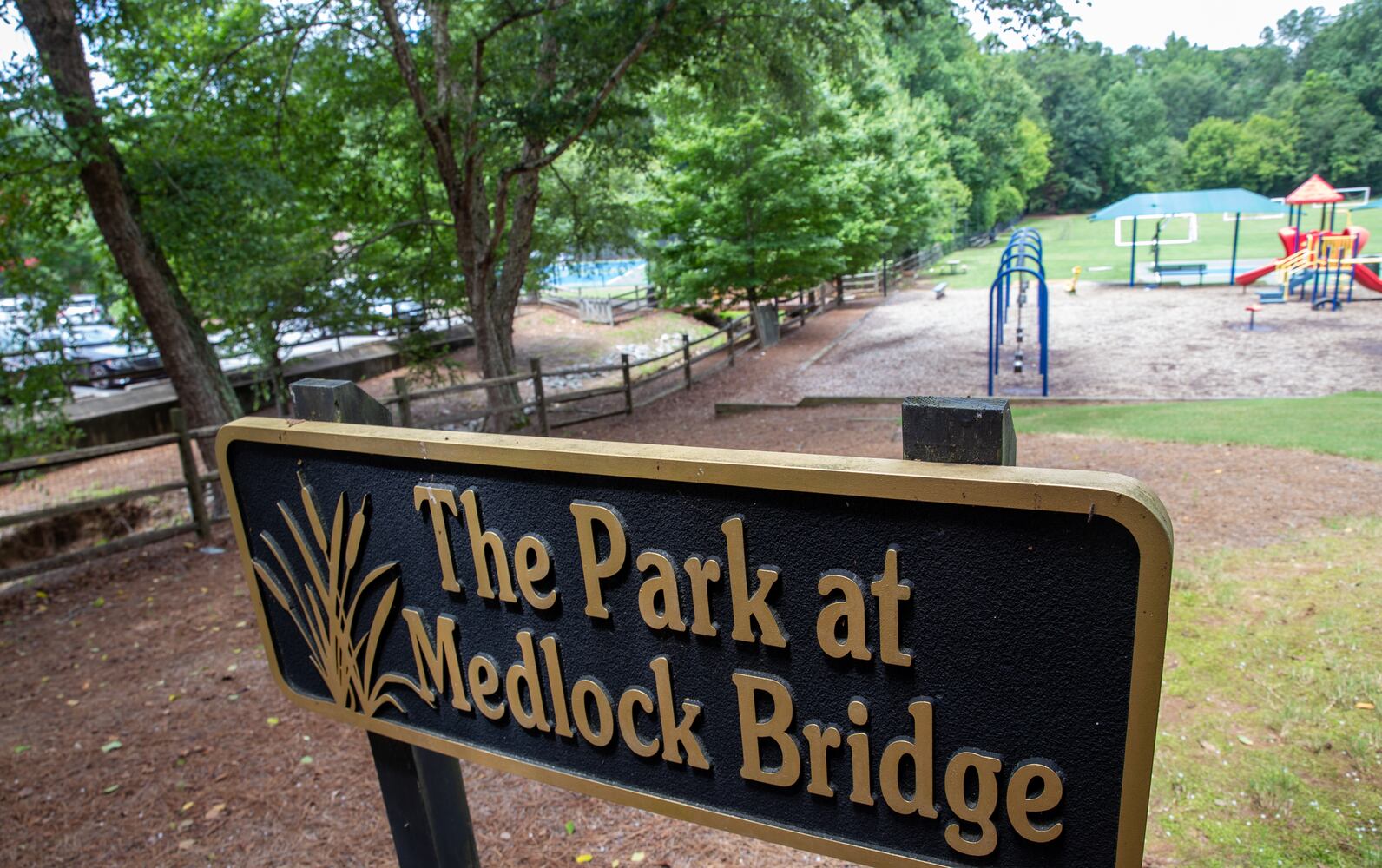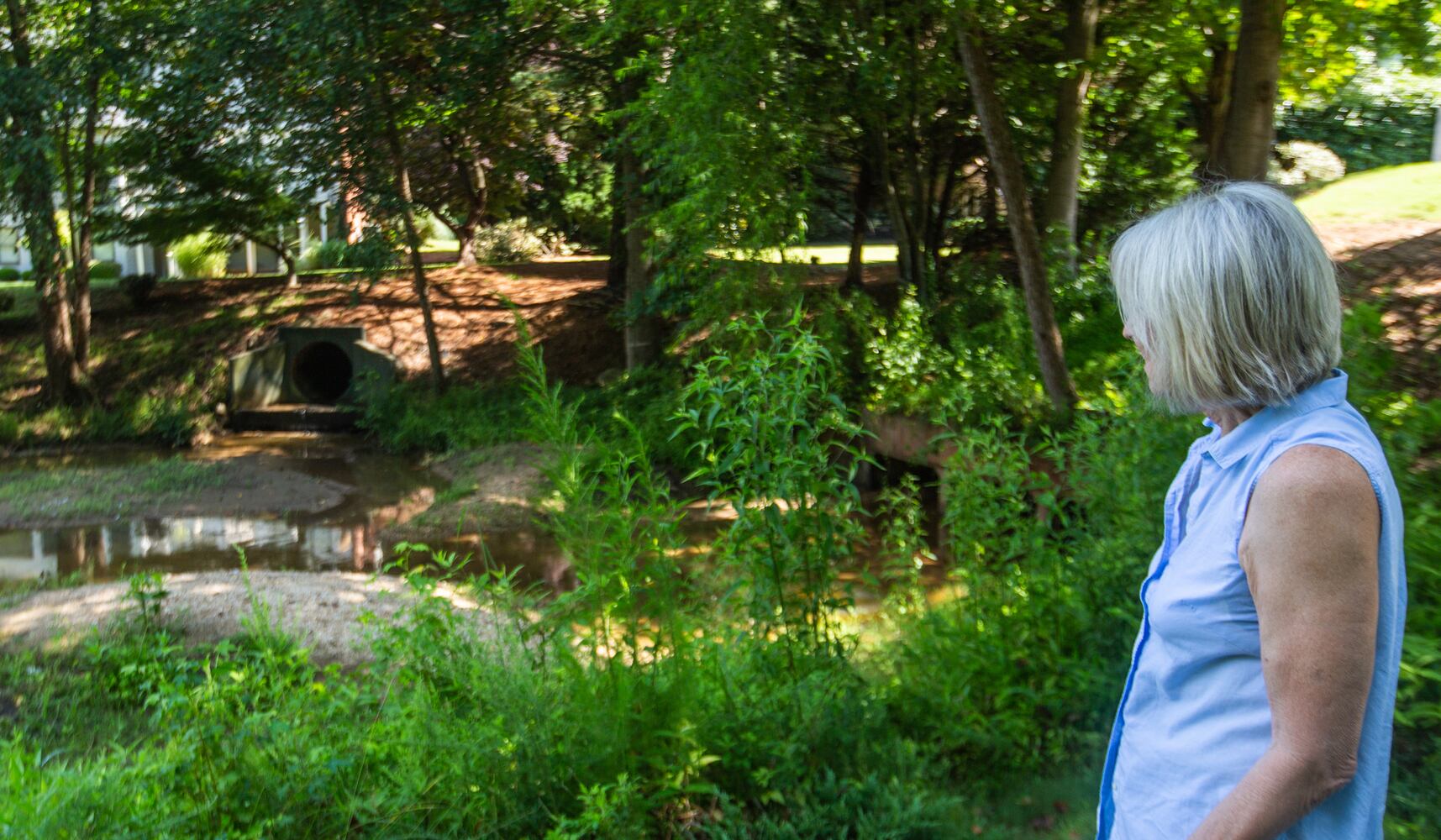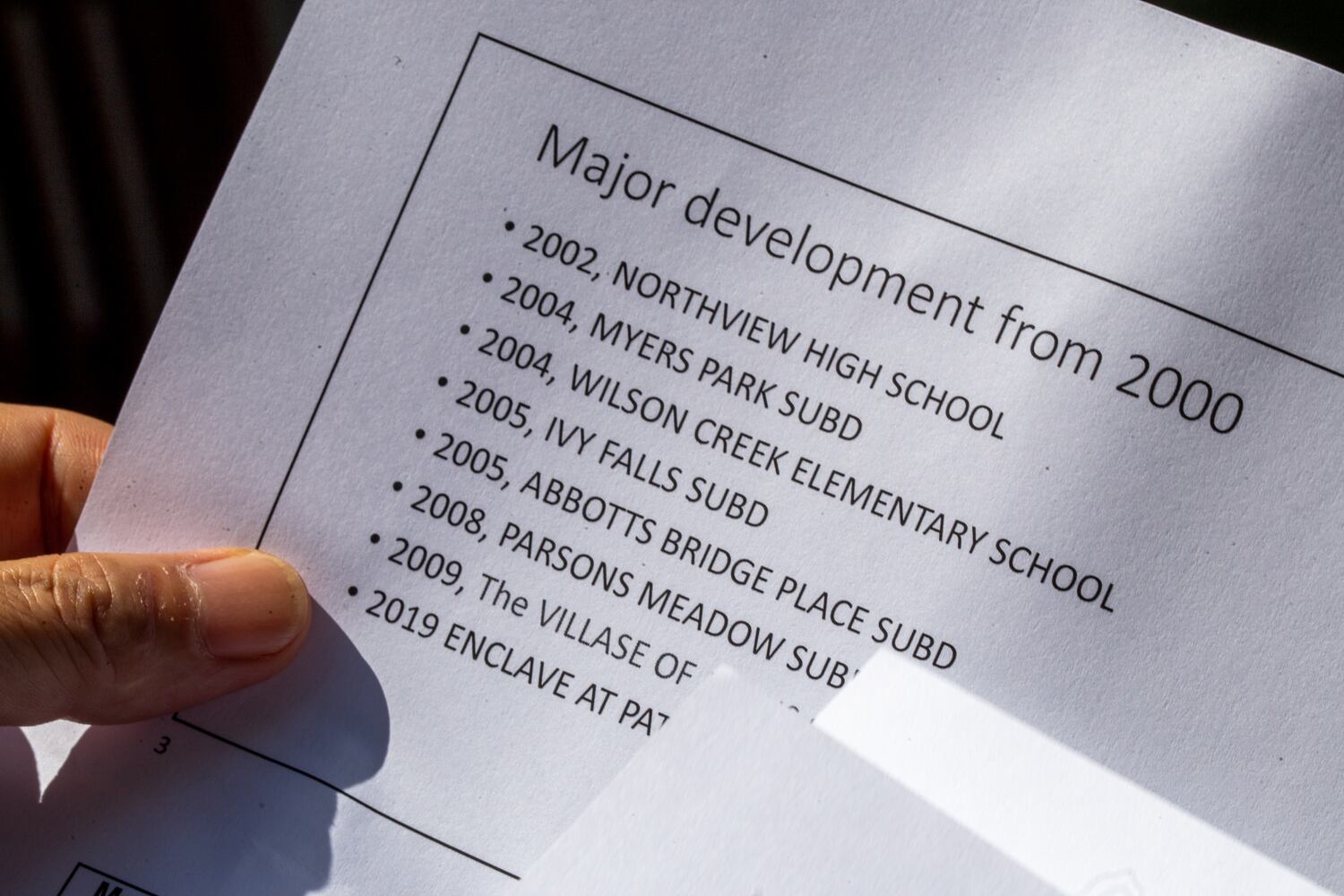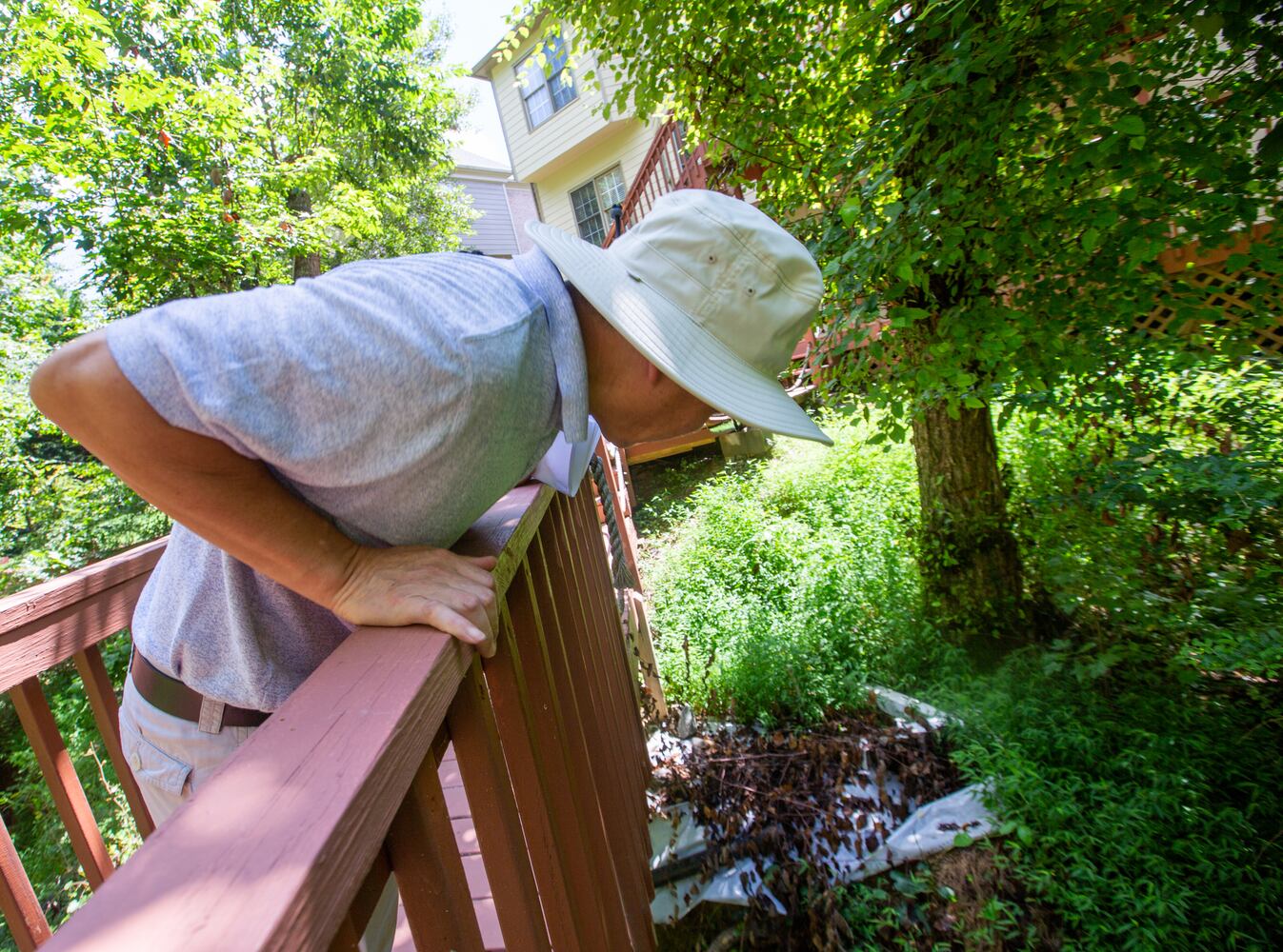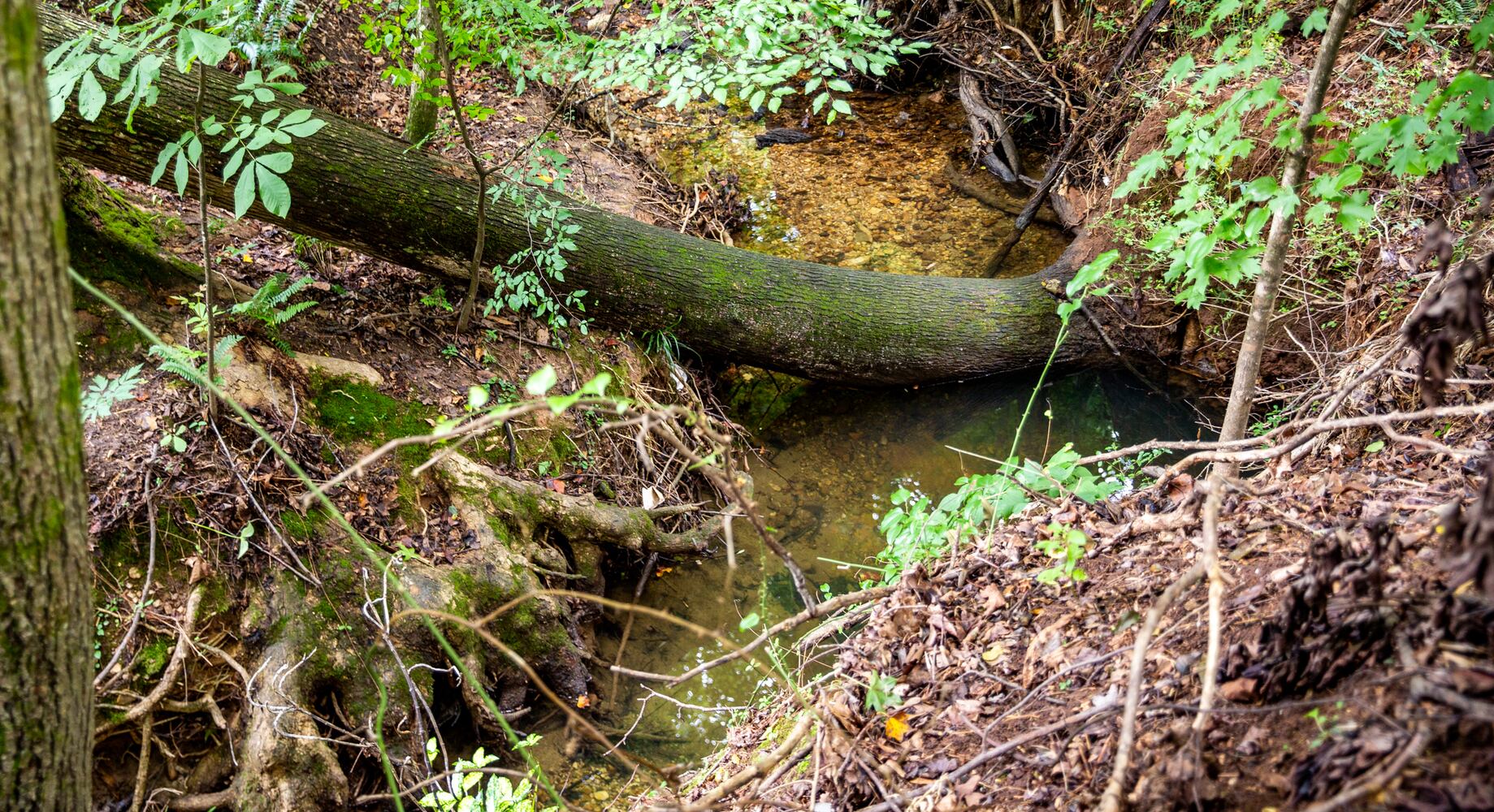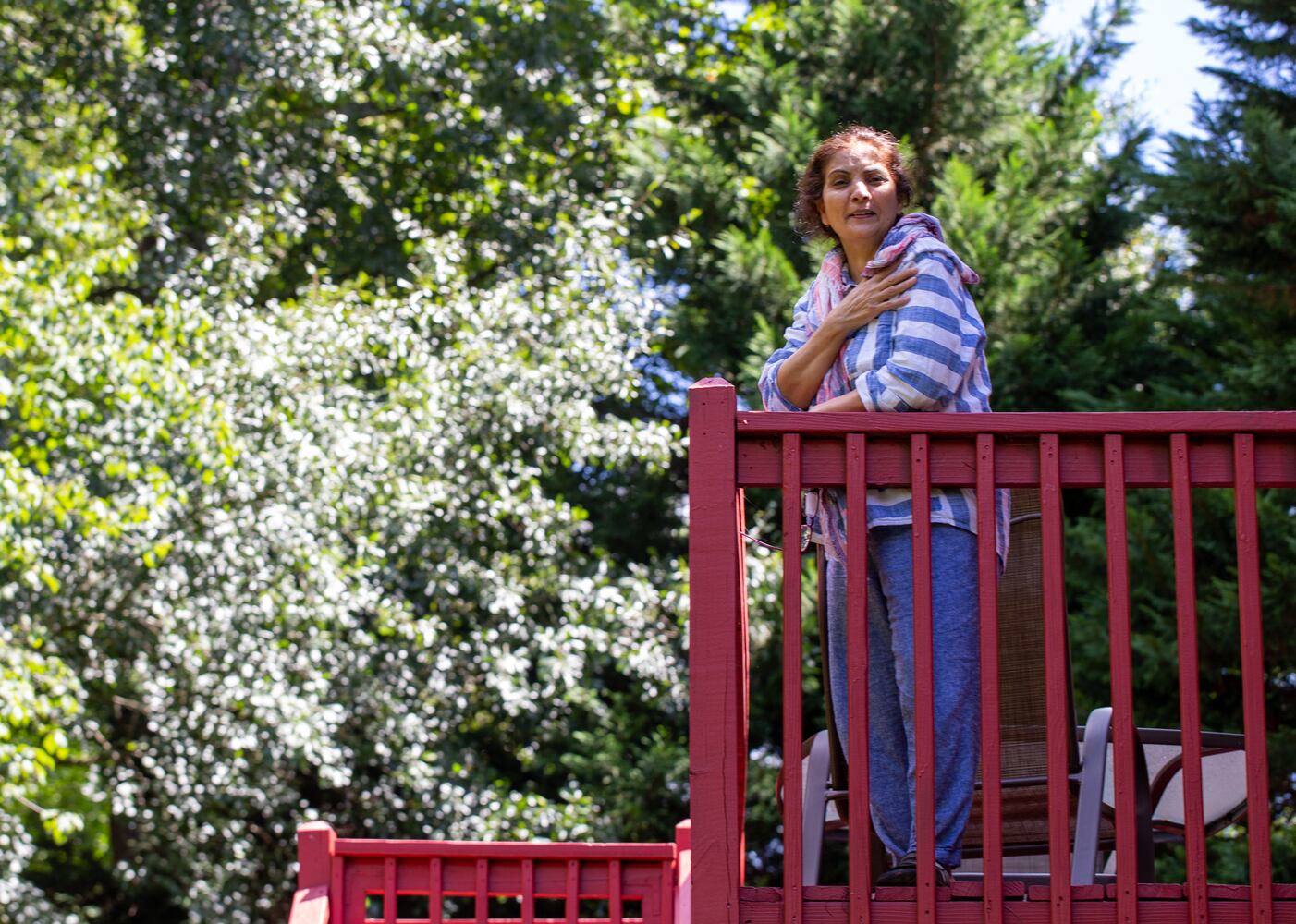A creek that runs through Jian Ma’s backyard in Johns Creek was five feet wide when he moved into his home in 2001. Today, the widest part of the creek measures nearly 35 feet wide and 12 feet deep, he said.
Ma, who lives in Medlock Bridge subdivision off Medlock Bridge Road, said the creek has dramatically widened and deepened over the past 20 years due to erosion from stormwater. The rushing water has exposed tree roots on the side of the streambank and caused large trees to fall.
“After every storm I have to get a chain saw to clean up the branches and trees (from the creek),” Ma added. “If I don’t clean up, the water creates a bigger hole.”
Currently, there’s no easy fix for stormwater problems in Johns Creek, residents say. A new city stormwater fee will soon be charged to property owners to help address repairs. But neighbors on property that lies outside of the city’s stormwater service area say erosion, damage and even maintenance has already been too costly.
City Council plans to discuss stormwater problems during a Monday work session, Communication Director Bob Mullen said.
Johns Creek has just started a new stormwater program that residents complain will have some communities paying more than others to upgrade the system. Residents are facing a new stormwater utility fee to help the city pay more than $3.2 million dollars per year for repairs and maintenance for at least 10 years.
City Council approved the new stormwater utility ordinance in June. Bills will be mailed to residents through Fulton County in August, Mullen said.
The amount charged depends on what the city determines is the square footage of the stormwater runoff area on residents’ property. The city estimates half the homeowners will pay about $70 per year. According to the rate schedule, homes with large properties could pay $174 annually or higher.
A discount of up to 50% could be given in the first year. And additional discounts could be offered going forward, officials said.
Before the stormwater utility was created, Johns Creek spent $80,000 to $100,000 per year on stormwater maintenance or repairs, Mullen said.
“Stormwater has been a big subject for quite some time,” he said. “The utility (funding) and the program is really taking its first major steps forward ... with improvements, engineering and assessment.”
Anne Harriman, treasurer of Medlock Bridge homeowners association, said only about a third of the community is located in Johns Creek’s stormwater service area. But she calls the new utility a good beginning to manage a complicated system.
The community of 640 homes has spent $500,000 to dredge the subdivision’s lake over a 10-year period to remove silt, Harriman said.
Ideally, the lake — which is also a detention pond — cleans out the silt from water that flows in. The clean water then flows out a narrow dam, passing through the creek in Ma’s backyard before reaching Johns Creek and the Chattahoochee River, she said.
But increasing development in Johns Creek has brought more asphalt and concrete, known as “impervious surfaces,” which prevent rainwater from soaking into the ground, Harriman and Johns Creek officials said. More runoff carries more silt into the lake in Medlock Bridge subdivision, creating the need for dredging.
“The (city utility fee) is not going to solve the erosion in people’s backyards nor will it resolve this,” Harriman said of dredging the lake. “But the council people are sympathetic. They empathize in terms of this is ridiculous and not fair.”
Councilman Lenny Zaprowski said he believes an immediate solution is needed to address the city’s stormwater problems.
Zaprowski voted against the new utility. He said he wanted a stormwater management solution that included all property owners, especially “downstream” where Ma lives.
The councilman said he’s concerned about another property owner in the same area where the home is close to the creek.
“Within years, I think her house is going to crumble,” he said. “I wanted to raise the rate a little to get things done in five to seven years instead of 10 to15. The great news is we are doing something.”
Private gated communities such as St. Ives located across the street from Medlock Bridge subdivision pay for their own stormwater maintenance, Amy Little, president of St. Ives homeowners association, said.
The community won’t receive maintenance and repairs under Johns Creek’s stormwater program, even though St. Ives will be paying into it.
Subdivision residents will receive bills for the new stormwater utility.
In addition, homeowners associations will be charged thousands of dollars for roads and common areas owned by the association, according to the city’s rate structure. Little estimates St. Ives’ association will be billed $27,000 — a cost passed on separately to homeowner association members. Little acknowledged the association could receive a 50% discount on the new fees.
“We’re not against a stormwater utlility,” Little said of the St. Ives community. “I know some neighborhoods have suffered greatly. We’re just frustrated that we will be paying into a system and get zero from it. Stormwater repairs don’t come cheap.”
The community has paid more than $100,000 for stormwater repairs in the last few years, she said.
Johns Creek officials met with Harriman and several city residents in the weeks and months before voting on the new utility.
“It’s such a complicated issue,” said Megan Ross, president of Country Club of the South Board of Trustees, adding that there was a sense that officials didn’t understand at first how the utility would impact gated communities.
As a private community, Country Club of the South is coming up with long- and short-term solutions to addressing stormwater, she said.
“Big picture, it is obvious that runoff water is a growing problem for our city and I personally ... believe the large majority of our residents are prepared to contribute to the city’s efforts to address the citywide issue,” she added in a emailed statement.
About the Author
The Latest
Featured
